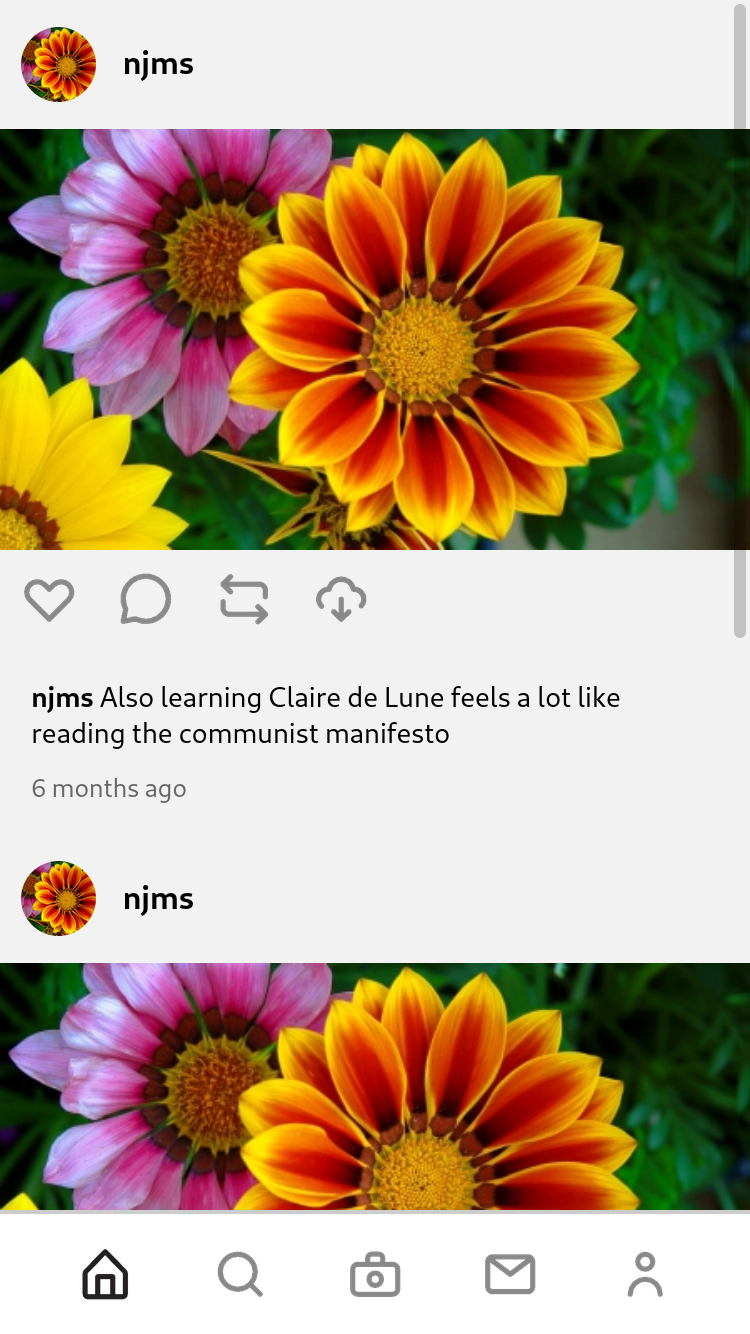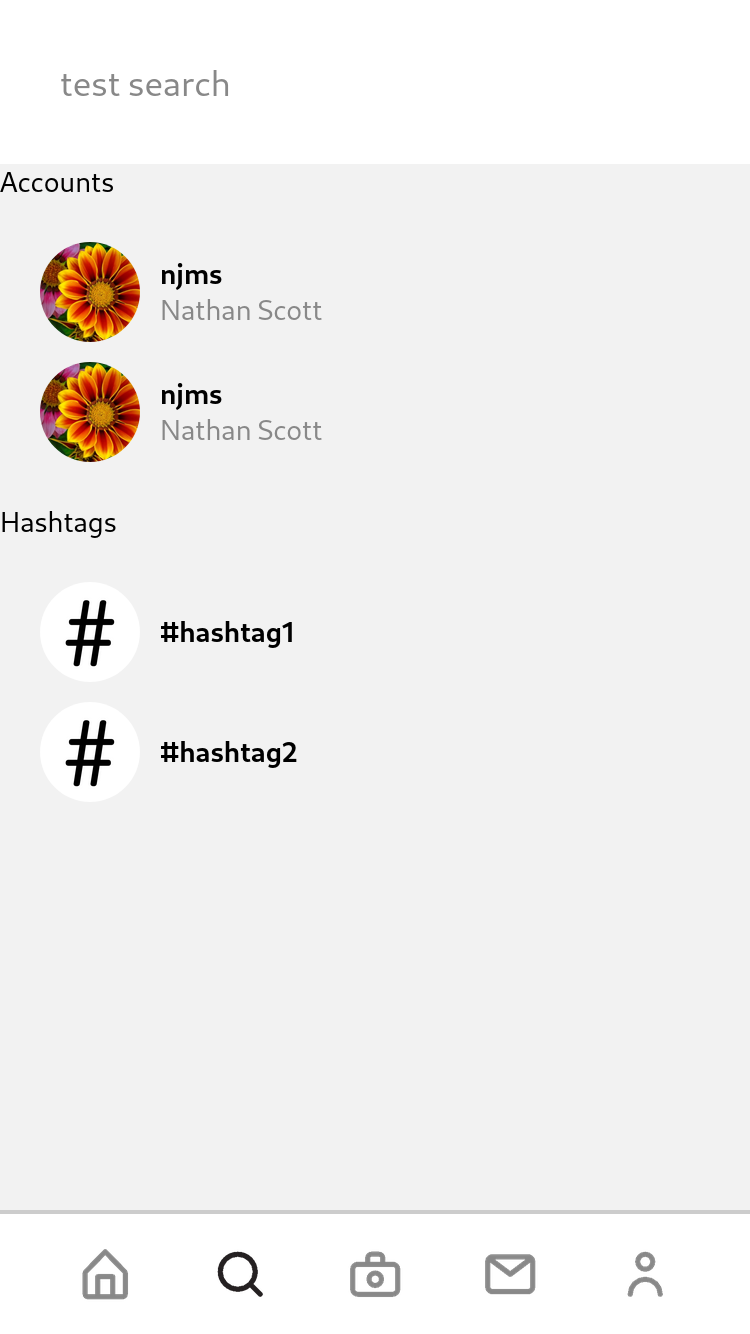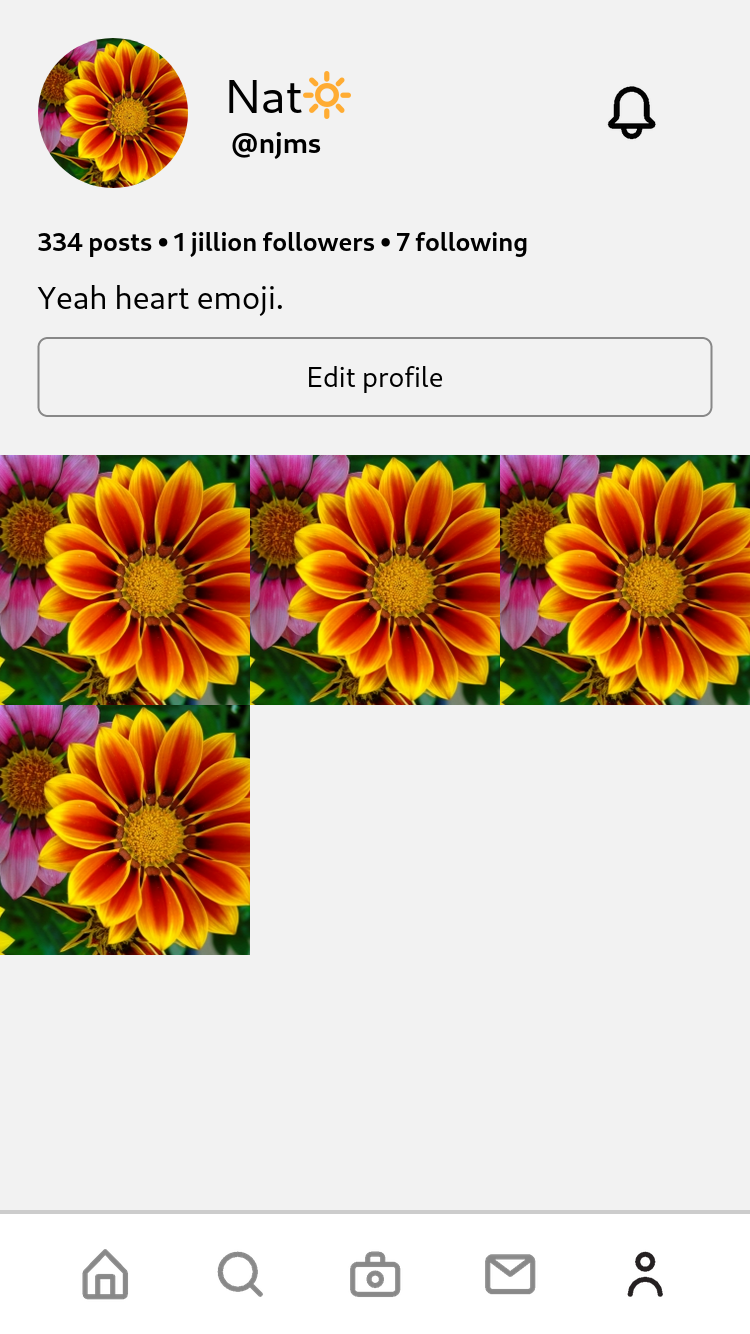|
|
||
|---|---|---|
| assets | ||
| src | ||
| .gitignore | ||
| CODE_OF_CONDUCT.md | ||
| LICENSE | ||
| README.md | ||
| app.json | ||
| babel.config.js | ||
| package-lock.json | ||
| package.json | ||
README.md

Resin is a Pixelfed client designed to minimize the chance the user will use it unhealthily. In other words, this app practices ethical anti-design. The way it does this is by avoiding dark patterns like infinite scrolling and putting obstacles in place to minimize the risk of the user taking unhealthy actions that are otherwise unavoidable.
Goal
The goal of this project is to create a model for what social media could look like were it not designed to be addictive. The Fediverse, not being dependent on ad revenue, shouldn't need to capitalize on people's attention. Still, many of the apps we use to interact with the Fediverse use the same dark patterns developed by companies that do. While these dark patterns may seem like industry standards, we have no need to follow them. This project seeks to demonstrate the different ways to go about doing that.
Screenshots
As of late February, the UI of Resin is still ACTIVELY under development and will likely change quite a bit. These screenshots probably won't be up to date most of the time.



Building
This project is written in React Native and built using Expo.
Here are the steps to build it yourself:
$ git clone https://github.com/natjms/resin # Clone the repository
$ npm install # Install the dependencies
$ expo start # start the development server
Contributing
This project is still extremely early in development; however, contributions are still more than welcome. If you're interested in helping out, the easiest way to get started would be to contact the project maintainer who would be more than happy to talk to you about it.